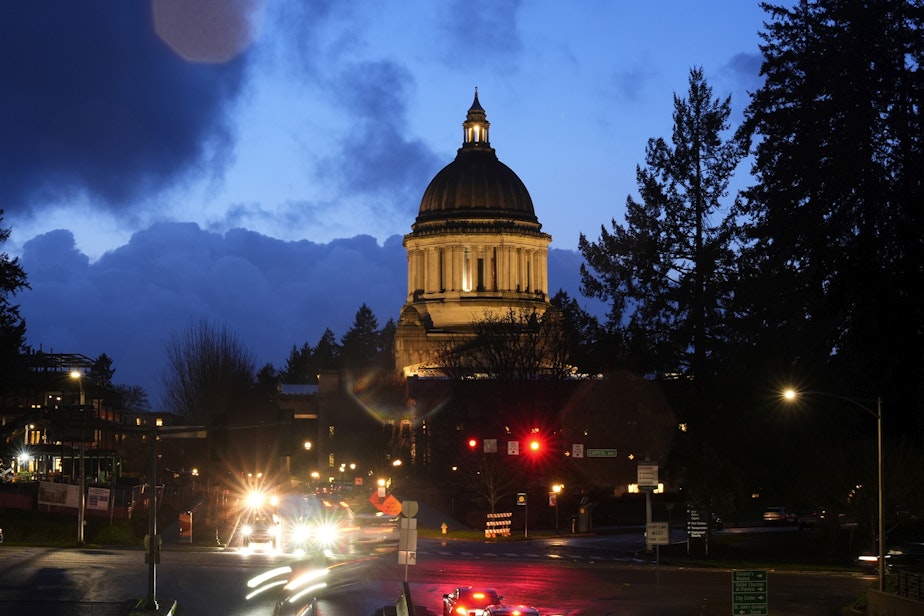Looks like they made it, or not. Highlights from Washington's 2025 legislative session

The work of governing a state comes to a pinnacle every year when the governor signs or vetoes legislation. Nearly 500 bills were completed this session in Olympia. That’s a lot to keep track of. To focus on some highlights, KUOW’s Kim Malcolm spoke to Olympia correspondent Jeanie Lindsay.
This interview has been edited for clarity.
Kim Malcolm: Let's start with the big one, the budget bill. What stood out to you this year?
Jeanie Lindsay: I think the weight of it all. This is a $78 billion, two-year budget, and it includes billions in new taxes, but there's also billions in cuts. A lot of numbers and math, and also just the challenge of getting to this deal with a brand-new governor, and a federal government that's also looking at cuts all over, and that's often at odds with the Democrats that are in power here. So, there’s just a lot at play with this year's budget, for sure.
It was interesting to see how people were lining up on different issues. There seemed to be a bit of a political romance brewing between state Republicans and Gov. Ferguson for a time there. Did the budget signing put an end to that?
Oh, yeah, absolutely. I mean, there was a lot of optimism from conservatives and Republicans coming into this year, especially with the talk from Gov. Ferguson. He did this speech starting out about reaching across the aisle and trying to be a governor for everybody. He was having meetings with Republican leadership, something that his predecessor Jay Inslee certainly was not doing. So, there was that optimism as Ferguson was sort of behind the scenes and having those conversations, but when it came to Ferguson's turn to take actual action, he ended up doing mainly what the legislative Democrats were hoping and accepting billions in higher taxes. Republicans certainly were very unhappy with that.
Sponsored
Housing costs put so much pressure on people living here, so a rent-control measure got a lot of attention this year. What happened with that one?
This was one of the most hotly debated pieces of legislation this session. The core of this bill essentially caps annual rent hikes for renters across the state. The final form wasn't what affordable housing advocates had dreamed of, but it does create new protections for renters that didn't previously exist. It caps rent increases at 7% plus inflation, or 10%, whichever is lower each year. There are exemptions for those caps for new construction, and those caps expire in 2040.
There's also a rent cap now in place for manufactured homeowners, for folks who own their homes but rent the land that they live on. Their rent hikes are capped at 5% and that's pretty significant, especially because those manufactured homeowner rent caps don't expire.
There was a parents’ rights bill that got a lot of attention earlier. Where did that end up?
This is sort of the continued fight over parents’ rights to access their kids’ school-based information after that initiative was enacted by the Legislature last year, putting this conservative-backed initiative language into law. Democrats came back and essentially made some amendments to that. They rolled back some of the rights that were laid out in the original initiative law, specifically around access to a student's medical and mental health records. It does keep a lot of parents’ rights to access their kids' school stuff intact, things like opting out of sex education or surveys that ask for various personal pieces of information.
Sponsored
This legislation went further than that, though. It also adds a list of new student rights and anti-discrimination protections for transgender students. There's also a new enforcement mechanism for the state to enforce those laws. We'll definitely be talking more about it, because the proponents for the original parents’ rights initiative are really unhappy with these changes. They're hoping to repeal those.
Listen to the interview by clicking the play button above.






